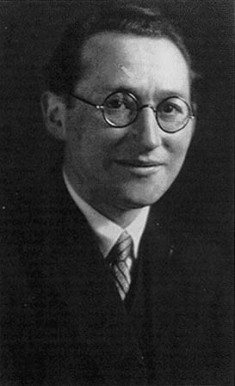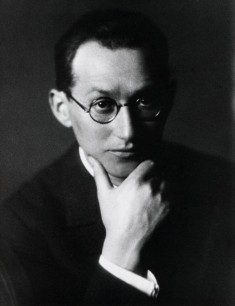| Kurt Lewin | |
|---|---|
 |
|
| Psychologist | |
| Born | Sep. 9, 1890 Mogilno, County of Mogilno, Province of Posen |
| Died | Feb. 12, 1947 (at age 56) Newtonville, Massachusetts |
| Nationality | German-American |
Kurt Lewin was a famous German-American psychologist. He is best known as the modern pioneer of the social organizational together with applied psychology. He is often known as founder of the social psychology and the first person to study organizational development and group dynamics.
Lewin’s Early Years
Kurt was born on September 9, 1890, into a Jewish family in Mogilno, Poland. He was one of the four kids born in this middle-class family. In 1905, this family moved to Berlin and in 1909, Kurt enrolled at the University of Freidburg to study medicine.
However, he changed and attended the University of Munich so he could study biology. Here, he got involved with socialist movement and women’s right. When the First World War started, he served in the German army before returning to the University of Berlin for his Ph.D. He worked under Carl Stumpf, a renowned psychologist, between 1848 and 1936.
Career in Psychology
Kurt Lewin was initially involved with different institutions of behavioral psychology just before he changed direction in research. He decided to work with other psychologists, such as Max Wertheimer and W. Kohler. Lewin also joined the Psychological Institute at the University of Berlin. Here, he taught and even gave seminars on psychology and philosophy.
In most cases, he associated with the early Frankfurt School in Germany. However, when Hitler rose to power in 1933, many members of the organization disbanded and left. They moved to England and later to America. During this time, he met Eric Trist of the London Tavastock Clinic. Eric was very impressed by Lewin’s theories and even went ahead to use all of them in his own studies on soldiers during WWII.
Lewin and Sensitivity Training
In August of 1933, Kurt moved to United States. He became naturalized citizen a few years later in 1940. Soon after, he joined Cornell University and the University of Iowa. Later, he became the director of the Center for the Group Dynamics at MIT. While still working at MIT in 1946, he received a call from the Connecticut State Interracial Commission requesting help to get an effective method of combating religious and many other racial prejudices.
Kurt Lewin decided to set up a workshop to conduct his experiment. The experiment laid the great foundations for what we now refer to as “sensitivity training.” In 1947, the National Training Laboratories was established at Bethel. According to Carl Rogers, sensitivity training was the single greatest social invention of that century.
Force Field Analysis
Force field analysis is a principle that was developed by Lewin. This principle provides the framework for checking the different forces influencing a certain situation. The principle looks at different forces that are a pushing a movement toward goal or blocking the movement toward the goal. This contributed greatly to fields of psychology, process management, social science, social psychology, change management and organizational development.
Other Contributions to Psychology
 In most cases, Kurt characterized the organizational management styles plus the cultures in reference to leadership climates. This is defined by three work environments: authoritarian, democratic, and laissez-faire.
In most cases, Kurt characterized the organizational management styles plus the cultures in reference to leadership climates. This is defined by three work environments: authoritarian, democratic, and laissez-faire.
Kurt Lewin also developed an early model of the term “change.” He described the term change as a three-stage process. He called the first stage unfreezing; this involved overcoming the great inertia and then dismantling the current mind set. This must be a part of surviving.
In his second stage, change takes place. This is a time of confusion where the mind knows that old ways are actually being challenged but it does not have one clear picture of what is replacing them. The third and last stage is called freezing. This is when the mind is crystallizing and a person’s comfort zone is returning to its previous levels.
Group Dynamics
In 1947, Kurt coined the phrase “group dynamics.” He described this as the way a group or an individual act or react to the different changing circumstances. The field came up as concept dedicated to growth of knowledge regarding nature of the groups, laws, development and also interactions with the other groups, institutions and other people.
During the early stages of the research on the group processes, most psychologists rejected the reality of this group phenomena. However, Lewin justified group existence with the help of the dictum. He theorized this by saying that when one group is formed, it becomes one unified system. Today, the study of dynamics is still very relevant in numerous professions such as sports, counseling psychology and business.